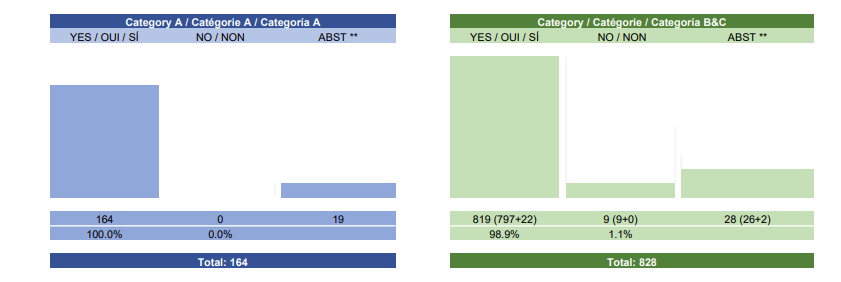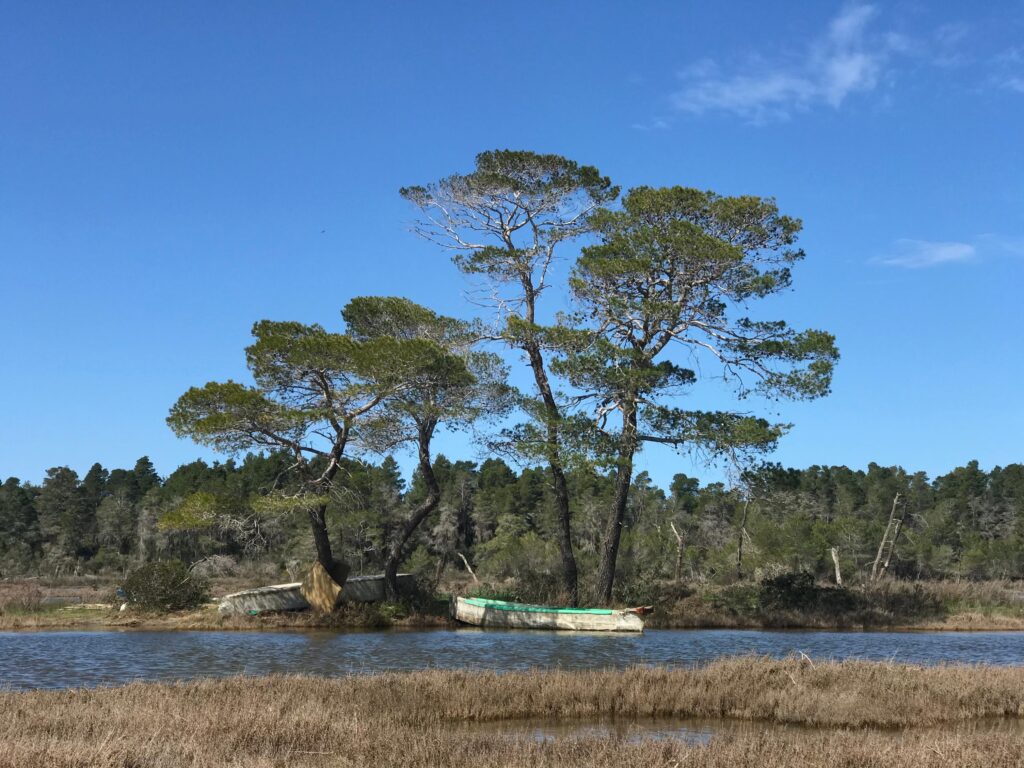
Motioning to the world the importance of wetlands at the World Conservation Congress
The world’s largest conservation forum is almost upon us with the IUCN World Conservation Congress set to run from October 9-15. Held every four years, the WCC (as it’s acronymically known), sets the policy and programme agenda for the IUCN (aka the International Union for the Conservation of Nature).
Wetlands International is deeply involved in the Congress, co-sponsoring four motions, co-hosting numerous events, and bringing a delegation from across our global network to Abu Dhabi – all to ensure that wetlands are high up the agenda in the coming years.
The Congress has technically already begun with electronic voting haven taken place on a host of motions ahead of the global gathering itself. And we already have some great news to report.
Firstly, an absolutely thumping majority of IUCN members voted ‘yes’ on Motion 23 to prioritise wetlands conservation and restoration to tackle the dual climate and biodiversity crises, which was co-sponsored by Wetlands International. Indeed, it was almost unanimous with 100% of voting countries/states clicking ‘yes’ on the motion along with 98.9% of other members.
This vote was a ringing endorsement of the need to focus more on wetlands – from rivers to reefs, marshes to mangroves, peatlands to ponds – if we are going to reverse catastrophic nature loss (85% loss of freshwater species populations since 1970) and tackle the climate crisis (both mitigation and adaptation). The motion also highlights the critical importance of the Freshwater Challenge – the ambitious country-led initiative to accelerate the protection and restoration of rivers, lakes and other freshwater wetlands – which will be showcased at a side event during the Congress.

We also co-sponsored Motion 130, “Strengthening restrictions against unsustainable tourism infrastructure”, which calls for stronger restrictions on unsustainable tourism infrastructure in IUCN Category I and II protected areas – and was endorsed by an overwhelming 98% of voting members.
Initiated by PPNEA (Albania) and co-sponsored by 14 partner organizations, including EuroNatur, BirdLife International, Tour du Valat, and others, the motion is a global achievement for conservation. Together, we reaffirmed a simple principle: protected areas are for conservation, not massive development, including for mass tourism.
From Albania’s coastal wetlands and aged sand dunes of Vjosa–Narta, where luxury resorts and airports are planned, to similar struggles across the globe, Motion 130 is now a strong international reminder to governments that tourism is no excuse to destroy protected areas.

These two were major successes for Wetlands International and our partners. But we also backed a series of other resolutions that were adopted electronically, including these Motions:
- 3 – Developing a unified global definition of ‘peatland and peat’;
- 17 – Springs under threat: mobilising urgent action for neglected freshwater systems;
- 18 – Advancing and tracking global river conservation to meet biodiversity and climate goals;
- 19 – Activating sustainable management of inland fisheries;
- 20 – Implementing an aquascape approach to conservation of fresh and saline water ecosystems;
- 21 – For an international framework for the preservation of watershed heads and the strengthening of their resilience in a changing climate;
- 24 – Declaration on the urgent preservation of high mountain wetlands in Latin America;
- 25 – Recognizing India’s First Dugong Conservation Reserve; and
- 36 – Facilitating synergistic delivery of multilateral commitments on conserving coastal ecosystems.
But Wetlands International is not focussed solely on motions that directly impact wetlands. We also voted in favour of a number of other critical resolutions that linked to our broader objectives around people, nature and climate, including:
- 43 Integrating biodiversity conservation in carbon pricing and trading programmes for climate change mitigation – This aligns with two of our key advocacy asks on climate, namely the need to protect all wetlands, including forested wetlands, in the energy transition, and encouraging the inclusion of wetland-based high-integrity (teal and blue) carbon credits in voluntary carbon markets, following the mitigation hierarchy, with rigorous safeguards to protect biodiversity, and Indigenous peoples’ and Local communities’ rights.
- 80 Ensuring companies disclose and take action to minimise negative impacts on biodiversity in ways that will achieve the goals of the Kunming-Montreal Global Biodiversity Framework lead – This covers disclosure of impacts on species as well as ecosystems and was endorsed by around 87% of voting members.
But there are many more motions to come. These – often more controversial topics – will be voted on in plenary during the Congress. Wetlands International has co-sponsored two of these on the Rights of Rivers and Safeguarding human rights and biodiversity in energy transition mineral governance.
More on those and our other participation at WCC 2025 in a separate story.
